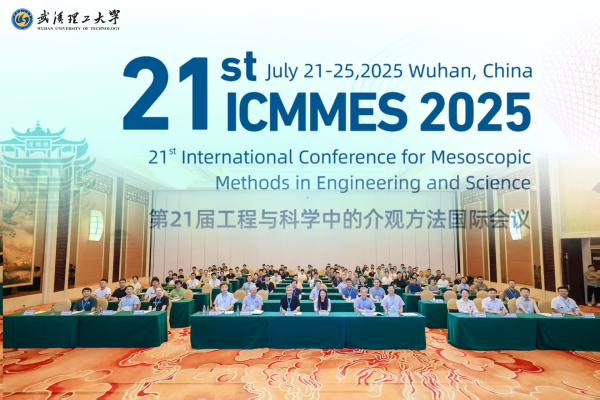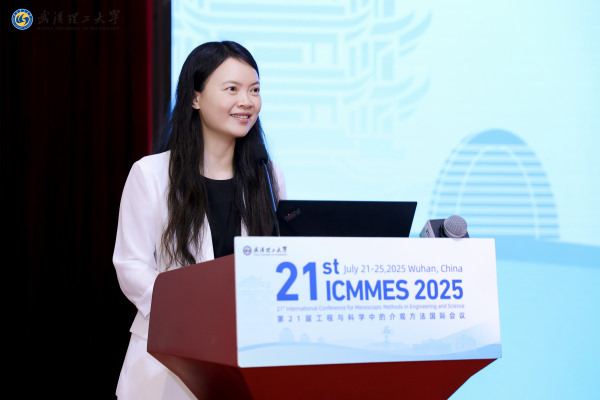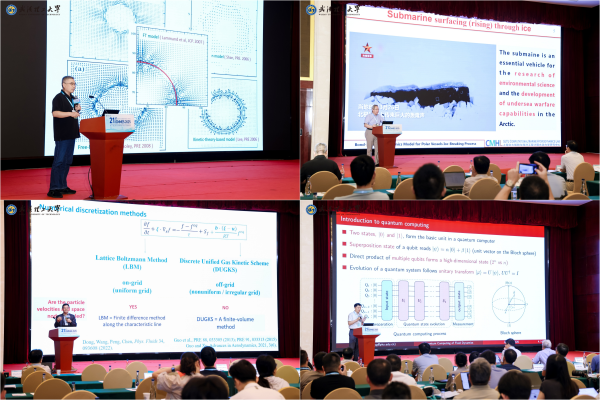
From July 21 to 25, the 21st International Conference for Mesoscopic Methods in Engineering and Science (ICMMES-2025) was held in Wuhan, China. Hosted by Wuhan University of Technology (WUT) and co-organized by Huazhong University of Science and Technology (HUST), Eastern Institute of Technology, Ningbo, and Wuhan Supercomputing and Intelligent Computing Center, the conference brought together over 100 scholars, researchers and industrial experts from around the world to exchange insights on the latest research advances and practical applications of mesoscopic methods in engineering and science.

Vice President of WUT, Luo Rong, delivered a speech on behalf of the university, pointing out that the breakthroughs often occur at the convergence of the interdisciplinary fields, theoretical innovation, computational methodologies, and international collaboration. Hosting ICMMES 2025 exemplifies the university’s ongoing commitment to providing a platform for cutting-edge research and international academic exchange.

As the representative of the ICMMES International Scientific Committee, Prof. Guo Zhaoli of HUST emphasized in his address that the rapid development of science and technology has led to the continuous emergence of new engineering and research challenges. Under such circumstances, the mesoscopic methods have become increasingly vital to bridge microscopic and macroscopic physical phenomena, providing innovative pathways to address multi-physics coupling and complex nonlinear problems.
Following the opening ceremony, leading experts and emerging scholars from colleges and institutions, such as the University of Oxford, Peking University, Shanghai Jiao Tong University, and Southern University of Science and Technology, sequentially shared their latest research progress, delivering an intellectually stimulating symposium to the attendees.

The conference featured 10 specialized sessions and 103 presentations, including 5 plenary talks, 14 invited talks, 68 oral presentations, and 16 poster presentations. Experts held in-depth discussions across a wide range of topics, such as artificial intelligence (AI) and quantum computing, algorithms and software, combustion and reactive flows, complex fluids, high-performance computing, kinetic theory of gases, turbulence and rarefied flows, micro- and nanoscale flows, and multiphase flows.
The successful convening of this conference provided a broad platform for fostering interdisciplinary collaboration in mesoscopic methods, creating fertile ground for scientific breakthroughs and original innovations, while significantly advancing the development of advanced computational methods. Through in-depth dialogue and collaborative engagement, participants addressed pivotal scientific issues and technological challenges in the field of mesoscopic methods, further advancing academic progress and technological innovation in this domain.
Written by:Jiang Mao Qiang
Rewritten by: Peng Zhiming
Edited by:Li Huihui, Li Tiantian
Source: School of Naval Architecture, Ocean and Energy Power Engineering
|
|